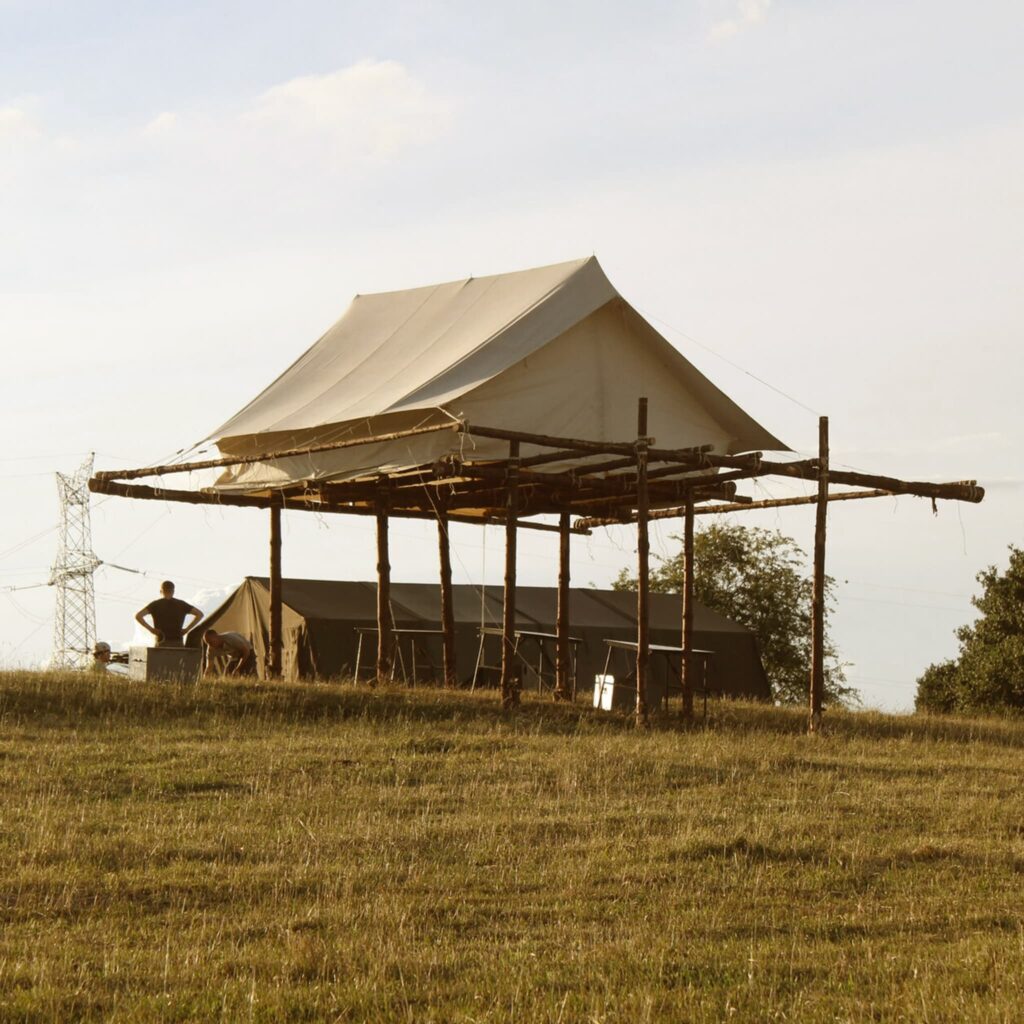How To Choose The Right Tent?
September 24, 2021
Cotton, polyester, nylon… These are the most common materials used by tent manufacturers. But which tent material is best suited to your holiday?
When you buy a new tent, one of the most important choices is the material it is made of. Think carefully about what you will use the tent for. To make your life easier, we’ve summed up the most important advantages and disadvantages of cotton, polyester and nylon, which should help you when buying a new tent.


Cotton
Tents have been made from cotton since ancient times, mainly for family and bungalow tents. Cotton is a natural fibre that grows as white fluffy balls on the seeds of the cotton plant. The result? A natural and strong fabric that is breathable and regulates moisture, reducing the chance of condensation. In addition, a cotton tent is relatively easier to recycle afterwards.
Compared to tents made from synthetic fabrics, cotton tents are more resistant to harmful UV rays and will be the best solution to offer you the best comfort in any climate.
Of course, there are also disadvantages. Since cotton is a natural fabric, it is naturally less resistant to moulds compared to synthetic fabrics such as polyester and nylon. To reduce the risk of mould development on a cotton tent, tent canvas is usually treated to be rot-resistant and waterproof.
By always drying your tent before storing it, you can reduce the risk of mould. Read our blog post on how best to store your tent.
In addition, a cotton tent will usually be heavier than a tent made of a synthetic material and it will also have a longer drying time.
Polyester
Polyester is a suitable tent fabric when a tent needs to be packed light and compact. This light and UV-resistant fabric is rather stiff and therefore non-elastic. When you stretch a polyester tent, a lot of force is put on the seams and there is a risk that the stitching holes become larger.
In contrast to cotton, polyester is less breathable, which means that condensation is more likely to occur inside the tent.
Nylon
Tents made of nylon are especially popular among adventurous backpackers.
This light and flexible fabric can be stored compactly and has a shorter drying time compared to other tent fabrics. This is a very important feature for backpackers who like to carry as little weight on their back as possible, so as not to impose additional burdens on their long trekking trips. Backpackers usually pitch their tents in the evening and take them down early in the morning. The fact that nylon has a short drying time is therefore very convenient for them.
Since nylon is a synthetic fabric, it is less susceptible to mould.
The big disadvantage of nylon is that it is very sensitive to UV radiation. Backpackers usually do not suffer from this as they usually carry their tent on their back during the day and only set it up at night. In contrast to cotton, nylon and polyester are not breathable fabrics. Ventilation and a water-repellent inner tent are therefore must haves to make your stay as comfortable as possible.
Polyester
Polyester is a suitable tent fabric when a tent needs to be packed light and compact. This light and UV-resistant fabric is rather stiff and therefore non-elastic. When you stretch a polyester tent, a lot of force is put on the seams and there is a risk that the stitching holes become larger.
In contrast to cotton, polyester is less breathable, which means that condensation is more likely to occur inside the tent.
Nylon
Tents made of nylon are especially popular among adventurous backpackers.
This light and flexible fabric can be stored compactly and has a shorter drying time compared to other tent fabrics. This is a very important feature for backpackers who like to carry as little weight on their back as possible, so as not to impose additional burdens on their long trekking trips. Backpackers usually pitch their tents in the evening and take them down early in the morning. The fact that nylon has a short drying time is therefore very convenient for them.
Since nylon is a synthetic fabric, it is less susceptible to mould.
The big disadvantage of nylon is that it is very sensitive to UV radiation. Backpackers usually do not suffer from this as they usually carry their tent on their back during the day and only set it up at night. In contrast to cotton, nylon and polyester are not breathable fabrics. Ventilation and a water-repellent inner tent are therefore must haves to make your stay as comfortable as possible.


So, the conclusion?
Every tent fabric has its advantages and disadvantages. When you buy a new tent, it is important to know first what you are going to use it for.
A cotton tent is not the most suitable tent for an adventurous backpacker who carefully weighs every gram in his backpack. The longer drying time can also be inconvenient for them. In that case, you are better off opting for polyester or nylon. Are you planning to leave your tent up for a longer period and are weight and storage space not decisive factors? Then cotton will be the most pleasant tent fabric to stay in during your holiday.

